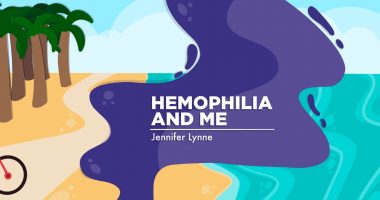Advocating for Women with Hemophilia Through National Conferences

Patrice Thomas has utilized her skills as a women’s healthcare advocate to learn about marginalized communities and support structural change. Through her current position at the Hemophilia Foundation of Michigan (HFM), Patrice is bringing together women with hemophilia and healthcare providers to educate and break down barriers so girls and women can receive the highest-quality treatment.
Patrice’s first opportunity to work with women affected by hemophilia came when she was hired to facilitate the Victory for Women Program for the National Hemophilia Foundation (NHF). Patrice discovered that the groundwork had been lain by other educators and healthcare providers during the mid-90s. Awareness campaigns were developed for girls and women with von Willebrand disease (VWD), a critical step in bridging the divide between affected women and effective treatment.
To better understand women affected by bleeding disorders, Patrice embarked on a “listening tour.” Listening to women’s stories was critical in the development of national programs, including a webinar for NHF chapters.
Some of the challenges women face are gender-related, such as being ignored or not being taken seriously. Other challenges are unique to the bleeding disorder community, such as growing up in a family where heavy bleeding is normalized. Gynecologists and hematologists are not always aware of the serious consequences that can occur during childbirth and postpartum for affected women. Women classified as “mild bleeders” might have very heavy menstrual cycles and become anemic, which can be serious if left untreated, and lead to heart problems and severe fatigue.
While Patrice was working at the NHF, she saw the growth of educational options for women with VWD, such as chapter retreats and the National Outreach for von Willebrand conference that was started by the Arizona Hemophilia Association. However, the lack of support for carriers and women with hemophilia was apparent.
A conference is born
After transitioning to the HFM, Patrice and her colleagues sought out funding for more programming, specifically for women with hemophilia. A varied group of sponsors came together to support the first National Conference for Women with Hemophilia last November. There will be another conference this fall.
Patrice partnered with key players from her community to organize the conference, as well as organizations such as the Foundation for Women and Girls with Blood Disorders, the NHF, and the Hemophilia Federation of America. Patrice also worked with some of the top pioneers for women with bleeding disorders, including Dr. Roshni Kulkarni, Ann-Marie Nazzaro, PhD, and Dr. Barbara Konkle.
One thing that surprised Patrice about the first national conference was the passion and energy. “It blew me out of the water,” she recalled. “Bringing women together created a force in and of itself.”
As the conference unfolded, it became clear that nothing would stop the assembled group of women. They established a presence and were determined to find ways to elevate their voices and be noticed in the bleeding disorders community.
“Affected women are the most effective at advocacy,” Patrice said.
The power of storytelling
One of Patrice’s hopes for the second national conference is to create an oral history project. Recording women’s stories about their experiences with hemophilia will be an additional way to empower women to speak their truth and seek improvements in their healthcare. Patrice says she hopes that these stories will help educate future medical students about the realities of women with bleeding disorders.
This year’s conference will be Nov. 1–3 at the Westin Detroit Metropolitan Airport Hotel. Response to the conference was immediate. HFM needed to start a waiting list within one week of the announcement.
Validation
When asked what message she wanted to share with women who have hemophilia, Patrice replied, “Everything you’ve been through counts. It matters. Your lived experience is unlike anyone else’s. Take your grief, anguish, frustration, and pain and channel it into self-care, and then, if you want, community involvement.”
Thank you, Patrice, for allowing me to share your story.
***
Note: Hemophilia News Today is strictly a news and information website about the disease. It does not provide medical advice, diagnosis, or treatment. This content is not intended to be a substitute for professional medical advice, diagnosis, or treatment. Always seek the advice of your physician or another qualified health provider with any questions you may have regarding a medical condition. Never disregard professional medical advice or delay in seeking it because of something you have read on this website. The opinions expressed in this column are not those of Hemophilia News Today or its parent company, BioNews Services, and are intended to spark discussion about issues pertaining to hemophilia.







Comments